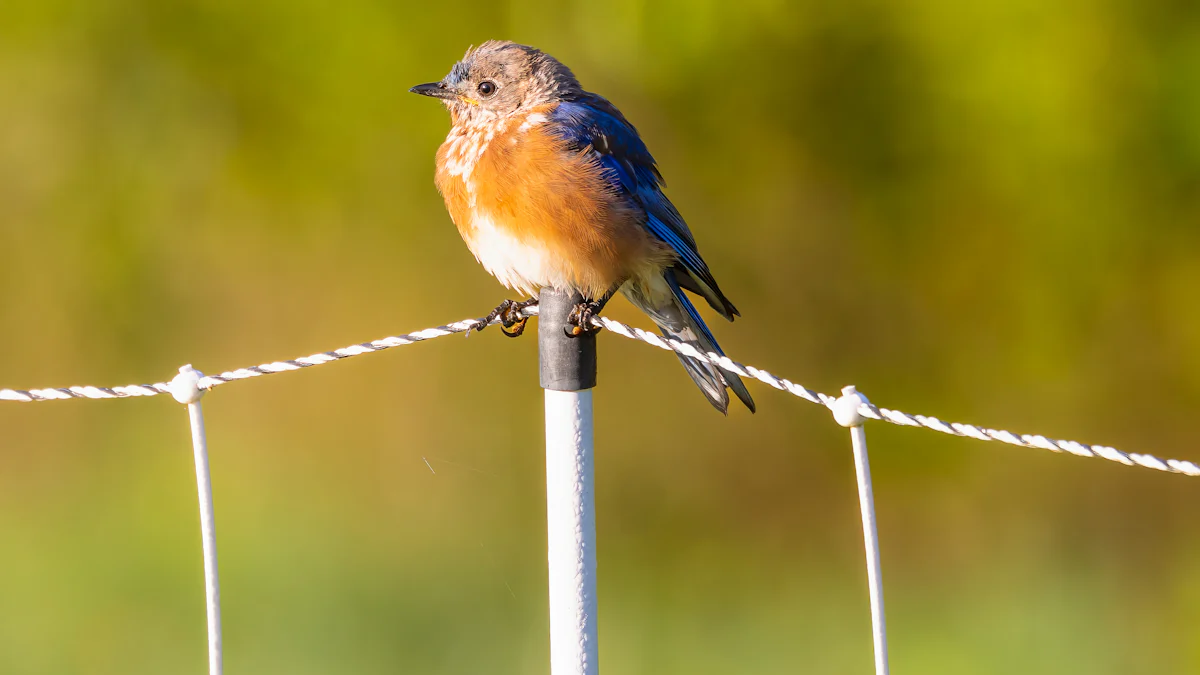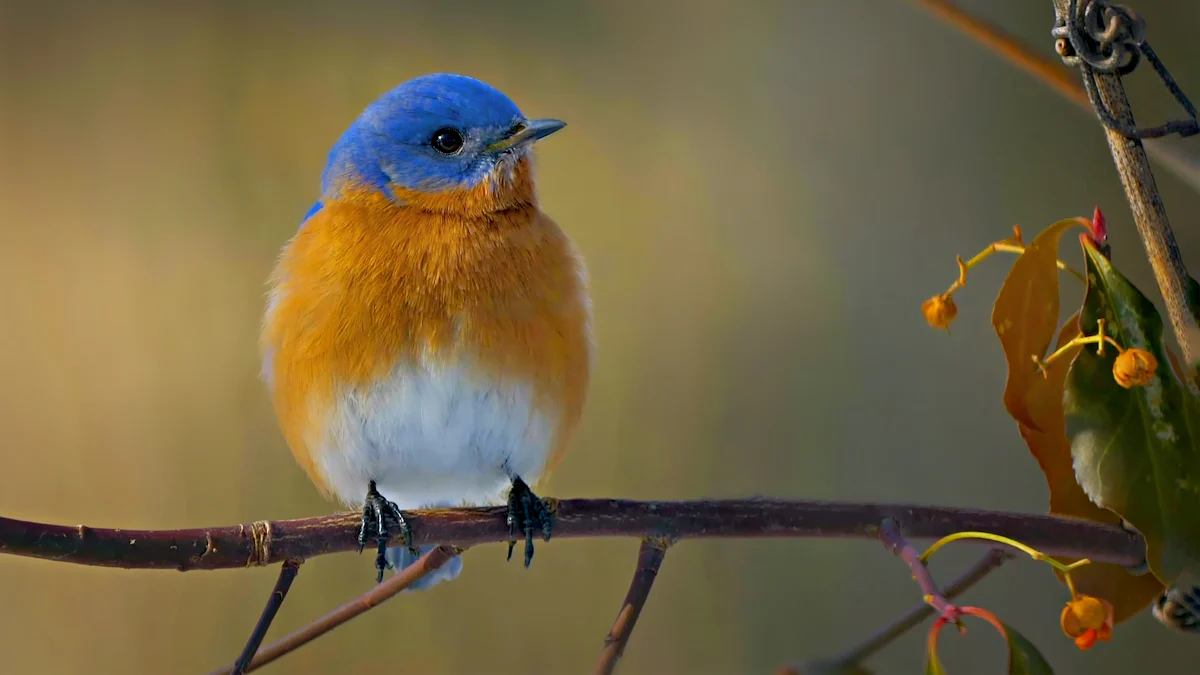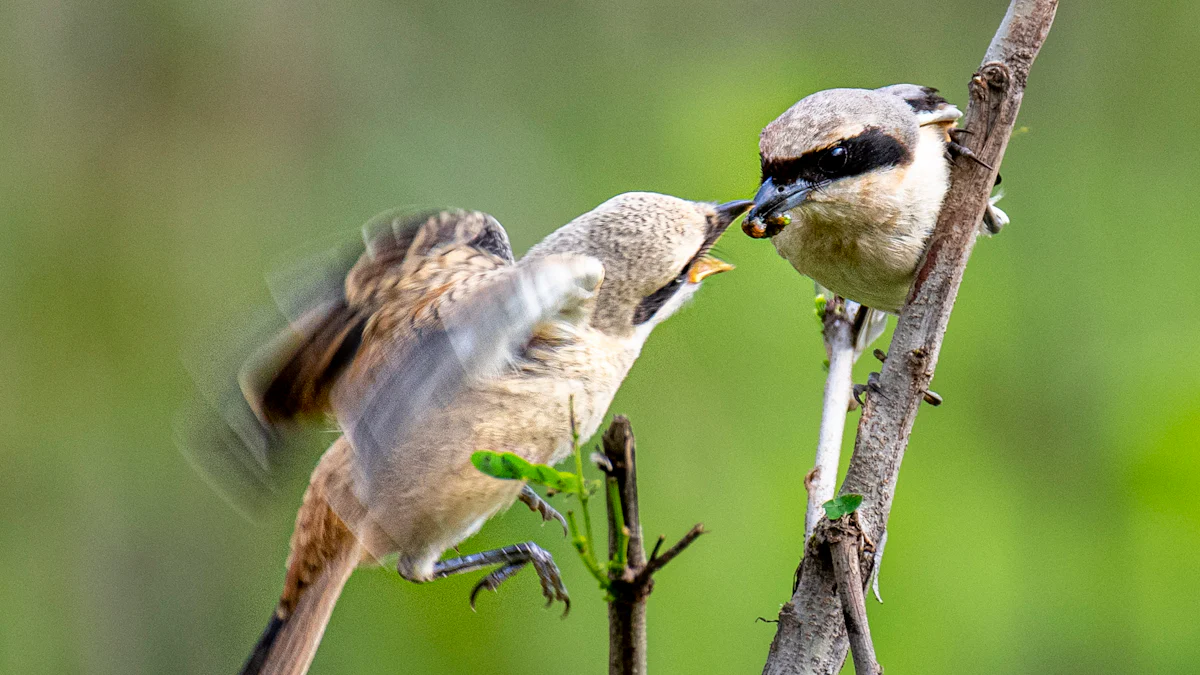
Dried Mealworms Bird Food offers a fantastic way to nourish and attract wild birds to your backyard. You’ll find these mealworms packed with high protein, essential fats, and fiber, making them a top choice for many bird species. Birds like bluebirds and robins love them, especially during breeding seasons. Unlike other bird food options, dried mealworms provide a mess-free, nutritious snack that supports muscle development and overall health. By choosing mealworms, you not only cater to the birds’ dietary needs but also enhance the biodiversity in your garden.
Key Takeaways
- Dried mealworms are a nutritious bird food option, rich in protein, essential fats, and vitamins, making them ideal for supporting bird health, especially during breeding seasons.
- Offering mealworms can attract a diverse range of bird species to your backyard, enhancing biodiversity and creating a lively avian community.
- Choose high-quality, additive-free dried mealworms from reputable suppliers to ensure your feathered friends receive the best nutrition.
- Proper storage in a cool, dry place is crucial for maintaining the freshness and nutritional value of dried mealworms, ensuring they remain a reliable treat.
- Incorporate mealworms into your bird-feeding routine by mixing them with seeds or fruits to cater to different bird preferences and maximize attraction.
- Using open tray feeders or specialized mealworm feeders can help prevent spillage and keep the mealworms dry, making feeding easier and more effective.
Nutritional Benefits of Dried Mealworms Bird Food

When you think about feeding wild birds, you want to give them the best. Dried Mealworms Bird Food stands out as a top choice because of its rich nutritional profile. Let’s dive into why these little critters are so beneficial for our feathered friends.
High Protein Content
Protein is crucial for birds, especially during breeding and molting seasons. Dried mealworms offer nearly 50% of their dry weight in protein. This high protein content supports muscle development and overall health in birds. When you provide mealworms, you’re giving birds the energy they need to thrive. Many bird species, like bluebirds and robins, flock to mealworms because of this protein boost.
Rich in Essential Fats
Birds need fats for energy, especially during migration or cold weather. Dried mealworms are packed with essential fatty acids. These fats help birds maintain their energy levels and keep their feathers in top condition. By offering mealworms, you ensure that birds have a reliable source of energy to sustain them through challenging times.
Packed with Vitamins and Minerals
Vitamins and minerals play a vital role in a bird’s diet. Dried mealworms are rich in B-vitamins and crucial minerals like iron and zinc. These nutrients support various bodily functions, from boosting the immune system to enhancing feather quality. When you choose mealworms, you’re providing a balanced diet that helps birds stay healthy and vibrant.
Incorporating Dried Mealworms Bird Food into your bird-feeding routine not only benefits the birds but also enriches your backyard with diverse bird species. By choosing high-quality mealworms from reputable suppliers, you ensure that you’re offering a natural and nutritious option. So, next time you fill your feeder, consider adding mealworms to the mix. Your feathered visitors will thank you!
Attracting a Variety of Birds

Mealworms as a Universal Bird Attractant
You might wonder why mealworms are such a hit among birds. Well, mealworms, whether live or dried, have a universal appeal that draws in a wide variety of bird species. Their high protein content and rich nutritional profile make them irresistible to birds, especially during breeding seasons when they need extra energy. Unlike traditional seed feeders, mealworms can attract birds that typically shy away from seeds. This makes them a versatile addition to your bird-feeding routine.
Dried Mealworms Bird Food offers a convenient and mess-free option for bird enthusiasts. While live mealworms might be juicier and more appealing due to their movement, dried mealworms still manage to attract a diverse range of birds. You can easily mix them with seeds, fruits, or suet pellets to create a delightful feast that caters to different bird preferences. This versatility ensures that your backyard becomes a bustling hub of avian activity.
Encouraging Biodiversity in Your Backyard
By incorporating mealworms into your bird-feeding strategy, you actively encourage biodiversity in your backyard. Birds that don’t usually visit seed feeders will find mealworms hard to resist. This not only enhances the variety of birds you see but also supports the local ecosystem. A diverse bird population helps control pests and promotes plant pollination, contributing to a healthier environment.
Offering Dried Mealworms Bird Food is a simple yet effective way to support wildlife. As a responsible bird enthusiast, you should choose high-quality mealworms from reputable suppliers. This ensures that the birds receive a nutritious and safe food source. Proper storage in a cool, dry place will maintain their freshness and nutritional value, making them a reliable treat for your feathered friends all year round.
How to Choose the Best Dried Mealworms
Selecting the right Dried Mealworms Bird Food can make a big difference in attracting and nourishing your feathered visitors. Here’s how you can ensure you’re picking the best option for your backyard birds.
Quality Indicators
When choosing dried mealworms, quality should be your top priority. Look for mealworms that are free from additives, chemicals, or artificial coloring. High-quality mealworms retain their natural color and have a pleasant, earthy smell. They should not appear shriveled or discolored. Opt for products labeled as "premium" or "high-grade," as these often indicate a superior nutritional profile. Brands like TH Global Vietnam offer reliable options, ensuring that you provide the best nutrition for your birds.
Sourcing and Sustainability
Consider where and how the mealworms are sourced. Reputable suppliers often provide information about their sourcing practices. Choose mealworms from suppliers who prioritize sustainability and ethical farming practices. Some companies contribute to environmental causes, such as reducing plastic waste, which adds an extra layer of responsibility to your purchase. Supporting brands that give back to the environment can make your bird-feeding efforts even more impactful.
Packaging and Storage Tips
Proper packaging and storage are crucial to maintaining the freshness and nutritional value of dried mealworms. Look for mealworms packaged in resealable bags or containers that protect them from moisture and pests. Once opened, store them in a cool, dry place to extend their shelf life. If you buy in bulk, consider dividing the mealworms into smaller portions and storing them in airtight containers. This practice helps keep them fresh and ready for your feathered friends.
By following these guidelines, you ensure that your choice of Dried Mealworms Bird Food is both nutritious and sustainable. Your backyard birds will benefit from the high-quality food, and you’ll enjoy the vibrant biodiversity they bring to your garden.
Dried Mealworms Bird Food offers a nutritious and versatile option for feeding wild birds. These mealworms are packed with protein and essential nutrients, making them a favorite among various bird species. By incorporating mealworms into your bird-feeding routine, you enhance the ecological diversity in your backyard. Give it a try! Start with small quantities to see which birds visit your feeders. You’ll soon notice a lively and diverse avian community enjoying this high-protein treat.
FAQ
Why should you feed wild birds mealworms?
Mealworms offer a nutritious treat that captures the interest of many backyard birds. Whether live or dried, mealworms provide essential proteins and fats that support bird health. They are especially beneficial during breeding seasons when birds need extra energy.
How often should you feed mealworms to birds?
You can offer mealworms daily, but moderation is key. Start with small quantities to see how much your local birds consume. Adjust the amount based on their interest and the number of birds visiting your feeders.
Which types of birdfeeders are best for mealworms?
Open tray feeders work well for serving mealworms. You can also use specialized mealworm feeders that prevent spillage and keep the mealworms dry. Mixing mealworms with seeds in regular feeders is another option to attract a variety of birds.
How do you store mealworms?
Store dried mealworms in a cool, dry place to maintain their freshness. Use resealable bags or airtight containers to protect them from moisture and pests. Proper storage ensures that mealworms remain a nutritious treat for your feathered friends.
What birds eat live mealworms?
Many birds enjoy live mealworms, including chickadees, titmice, wrens, and nuthatches. Bluebirds, in particular, find live mealworms irresistible. Offering live mealworms can attract these species to your backyard.
What garden birds eat mealworms?
In the UK, garden birds like starlings, thrushes, blackbirds, robins, and blue tits love mealworms. These birds, along with others that frequent your garden, will appreciate the high-protein treat.
How can mealworms be served to birds?
Serve dried mealworms straight or mix them with seeds, nuts, or fruit. You can also melt them into suet to create a bird food fat cake. This versatility makes mealworms a convenient addition to your bird-feeding routine.
How are mealworms beneficial for birds?
Mealworms, the larvae of the mealworm beetle, provide a high-protein treat for many birds. They support muscle development and overall health, making them a reliable food source for species like chickadees and bluebirds.
How can mealworms benefit pet birds?
Pet birds such as finches and canaries can also benefit from mealworms. Mix dried or freeze-dried mealworms with their regular food. Consult a vet to ensure a balanced diet and avoid overfeeding.
What are the different opinions on feeding live vs dried mealworms to birds?
Some birders swear by live mealworms for their natural appeal, while others prefer dried mealworms for convenience and cost-effectiveness. Both options provide nutritional benefits, so choose based on your budget and bird-feeding goals.


